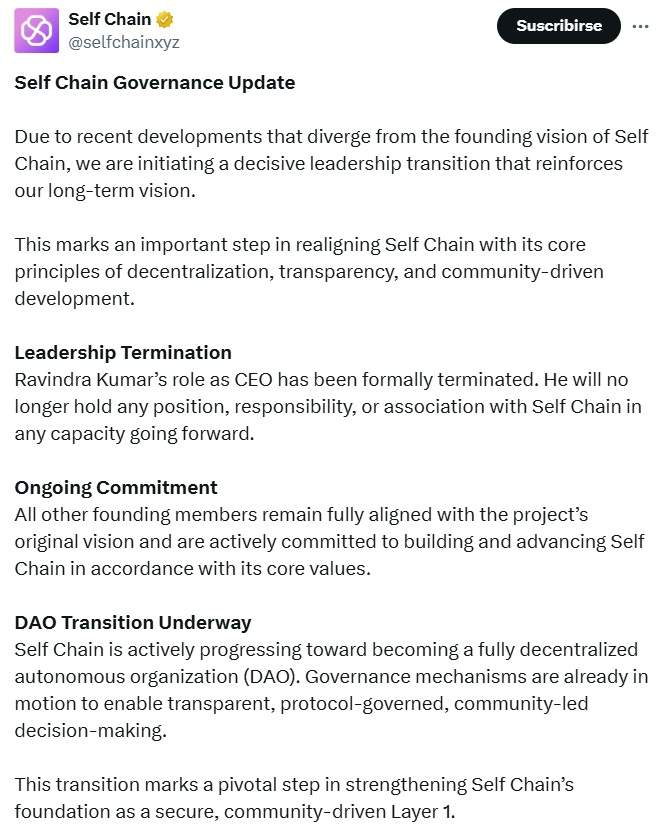TL;DR
- Scammed investors demand a repayment plan by June 30 or they’ll unleash international legal action, backed by a top Indian law firm, to pin down suspects.
- Investigators have pinpointed scammers’ real-world hideouts, and one insider, alias “Daku”, is now ready to cooperate, marking the first sign of potential restitution.
- The collective defends its 15% commission model, stresses its own capital losses, and urges the community to stay focused on the true perpetrators.
Significant developments are emerging in the investigation of the sophisticated Telegram OTC scam, perpetrated by Aza Ventures, that allegedly defrauded top crypto investors of $50 million through fake token deals. Victims have transformed their nightmare into a coordinated mission, launching legal offensives and uncovering critical new leads.
Legal Deadline and Cross-Border Pressure
A legal counsel representing the defrauded collective has formally contacted the perpetrators, demanding a concrete repayment plan by June 30th, or face escalation to international authorities.
Bolstering their efforts, victims have enlisted a top-tier Indian law firm to prevent suspects from fleeing the country. “What started as a nightmare has turned into a mission,” stated a collective representative, emphasizing their commitment to accountability. The group has meticulously documented losses from venture capitalists, private investors, and industry leaders, creating a unified front to strengthen their case.
Breakthroughs in the Hunt for Justice

Investigators have tracked multiple physical locations tied to the scammers, handing actionable leads to their legal team. In a pivotal twist, one individual, known by the alias “Daku”, has signaled a willingness to cooperate on restitution.
While victims remain cautious, this marks the first tangible movement toward recovery. “The pressure is mounting. Their identities are known, their information exposed, and they know they’ll be held accountable,” the representative declared. The effort now involves affected VC firms, investors, and industry figures, amplifying its global reach.
The role of Self Chain and the responsibility of Ravindra Kumar
The Self Chain blockchain project announced a drastic internal restructuring to disassociate itself from any connection to the case. In an official statement, Self Chain announced the immediate dismissal of Ravindra Kumar as CEO, stating that he no longer holds any role, responsibility, or connection to the organization. This measure comes after it was revealed that Kumar had been linked to the fraudulent scheme that deceived prominent crypto investors with the promise of token distribution that never materialized.
The decision to remove Kumar seeks to preserve the integrity of the project and its alignment with the principles of decentralization, transparency, and community governance. Self Chain reaffirmed its commitment to moving toward a decentralized autonomous organization (DAO) structure, with mechanisms in place to enable community-managed decisions. With the rest of the founding team still active and aligned with the original vision, the platform seeks to reinforce its position as a secure, community-led Layer 1 network, distancing itself from the individual actions of its former CEO.

Addressing the Commission Controversy
The collective also confronted accusations about their role, clarifying a contentious 15% commission structure:
- 5.5%+ went directly to a partner-broker (sometimes higher per source requests).
- Discounts are applied to loyal/high-volume partners and key opinion leaders (KOLs).
- Funds weren’t custodied; commissions offset deal-sourcing costs.
- Crucially, they stressed: “We contributed our own capital… We believed in those deals but were deceived, just like you.” The group described being “blindsided” by “Waseem,” a trusted contact who exploited years of collaboration. Urging unity, they stated: “Directing anger our way only helps the real scammers. We are in this fight with you.”
Despite the long road ahead, the collective vows relentless pursuit of justice. All eyes now turn to the June 30th deadline, and whether the accused will comply before global authorities intervene.










